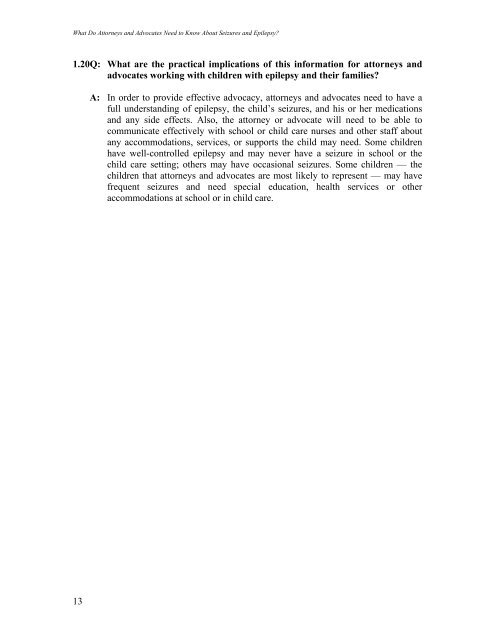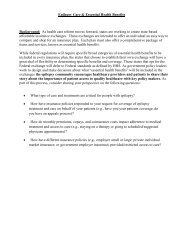Legal Rights of Children with Epilepsy in School & Child Care
Legal Rights of Children with Epilepsy in School & Child Care
Legal Rights of Children with Epilepsy in School & Child Care
You also want an ePaper? Increase the reach of your titles
YUMPU automatically turns print PDFs into web optimized ePapers that Google loves.
What Do Attorneys and Advocates Need to Know About Seizures and <strong>Epilepsy</strong>?<br />
1.20Q: What are the practical implications <strong>of</strong> this <strong>in</strong>formation for attorneys and<br />
advocates work<strong>in</strong>g <strong>with</strong> children <strong>with</strong> epilepsy and their families?<br />
A: In order to provide effective advocacy, attorneys and advocates need to have a<br />
full understand<strong>in</strong>g <strong>of</strong> epilepsy, the child’s seizures, and his or her medications<br />
and any side effects. Also, the attorney or advocate will need to be able to<br />
communicate effectively <strong>with</strong> school or child care nurses and other staff about<br />
any accommodations, services, or supports the child may need. Some children<br />
have well-controlled epilepsy and may never have a seizure <strong>in</strong> school or the<br />
child care sett<strong>in</strong>g; others may have occasional seizures. Some children — the<br />
children that attorneys and advocates are most likely to represent — may have<br />
frequent seizures and need special education, health services or other<br />
accommodations at school or <strong>in</strong> child care.<br />
13








